World last week: 'The last straw'
(Baonghean) - Just one day after South Korea convened a security meeting expressing deep concern over Pyongyang's short-range ballistic missile test, Kim Yo-jong - the younger sister of North Korean leader Kim Jong-un immediately harshly criticized. Thousands of Syrian refugees are stranded at the border between Türkiye and Greece with the hope of entering Europe to escape the war zone; raising fears of a migrant crisis. These are the international issues of concern this past week.
North Korea's new tough stance
Kim Yo-jong, first vice director of the Central Committee of the Workers' Party of Korea and younger sister of leader Kim Jong-un, has a moderate image, but her latest strong criticism, calling South Korea a "barking dog in fear," marks the first time she has made a political statement and shows that North Korea is increasing pressure on South Korea.
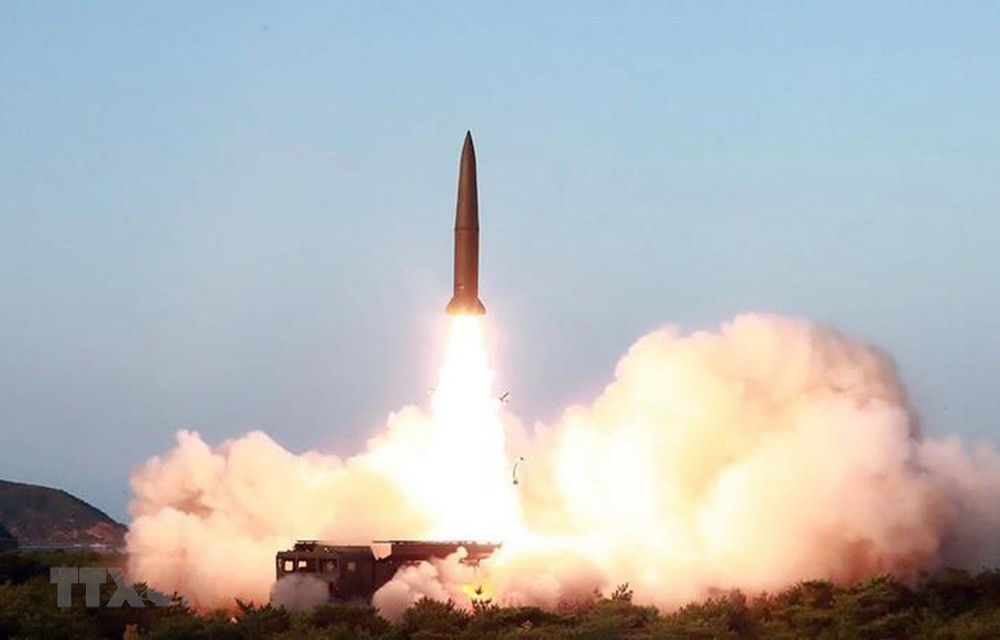 |
| A test-fire of a new type of strategic short-range guided missile at an undisclosed location in North Korea on July 25, 2019. Photo: AFP/TTXVN |
Kim Yo-jong's statement came after the Blue House (South Korea's presidential office) convened a meeting of security-related ministers, expressing deep concern over Pyongyang's test of two short-range ballistic missiles and calling for an end to activities that raise tensions. Kim Yo-jong said that South Korea has no right to criticize North Korea, which has conducted military exercises with the United States. Therefore, Seoul's condemnation of Pyongyang is "really meaningless". She asserted that such incoherent actions can only exacerbate the distrust, hatred and contempt between the two Koreas.
Kim Yo-jong is known as one of her brother Kim Jong-un's closest advisers. Her sharp tone in response was a sharp contrast to her role as Kim Jong-un's special envoy to the 2018 Pyeongchang Winter Olympics, which ushered in a new era in long-frozen inter-Korean diplomatic relations.
Moreover, analysts say Kim Yo-jong’s announcement of a political statement highlights her central role in the Pyongyang regime. “She was appointed first vice director of the Central Committee of the Workers’ Party of Korea in January, and her initial statements signal that she is moving further up the political ladder,” said Go Myong-hyun, an analyst at the Asan Institute for Policy Studies.
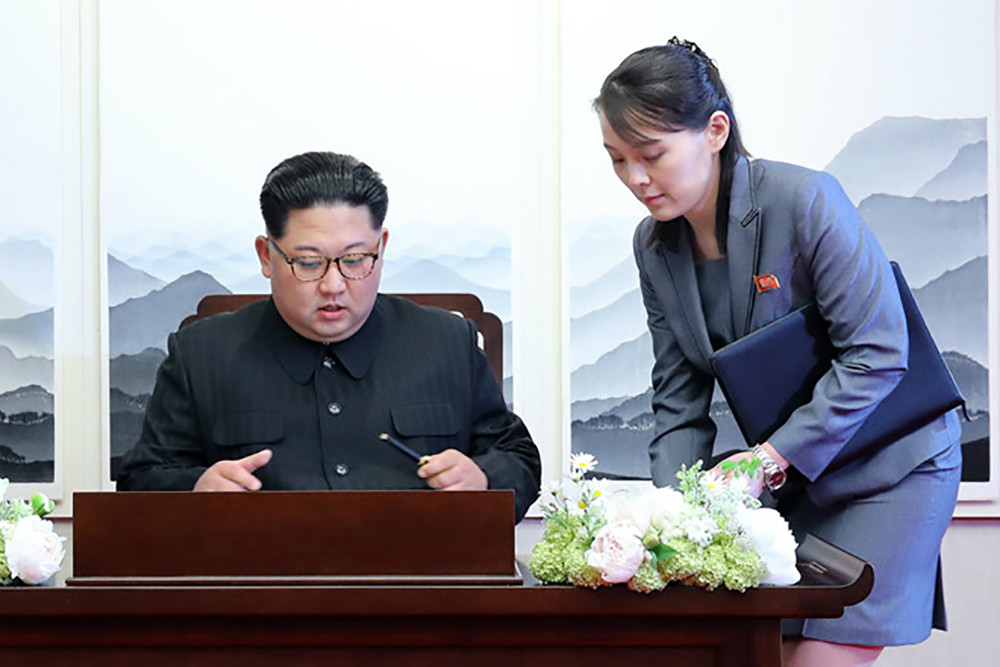 |
| Kim Yo-jong is known as the closest adviser to leader Kim Jong-un. Photo: AFP |
Previously, North Korean media released photos of leader Kim Jong-un supervising a super-large rocket artillery firing exercise. The exercise took place just days after the first anniversary of the summit between leader Kim Jong-un and President Donald Trump in Hanoi, and after the deadline Pyongyang gave Washington expired. Hong Min, a researcher at the Korea Institute for National Unification, commented: "What is worth mentioning is the way North Korean media reported this activity. Previously, every move carried a message aimed at South Korea and the US, but the information this time was relatively simple, only describing it as an inspection by leader Kim Jong-un." Therefore, Pyongyang believes that Seoul's reaction is completely unreasonable.
Inter-Korean relations have been deadlocked since the second US-North Korea summit in Hanoi in 2019 failed to make any progress. Pyongyang called on Seoul to abandon international sanctions and strengthen inter-Korean economic ties, but South Korea refused. This angered North Korea, and exchanges have stalled. Recently, Pyongyang has not responded to Seoul's request to relax travel restrictions to North Korea or coordinate in fighting the Covid-19 pandemic.
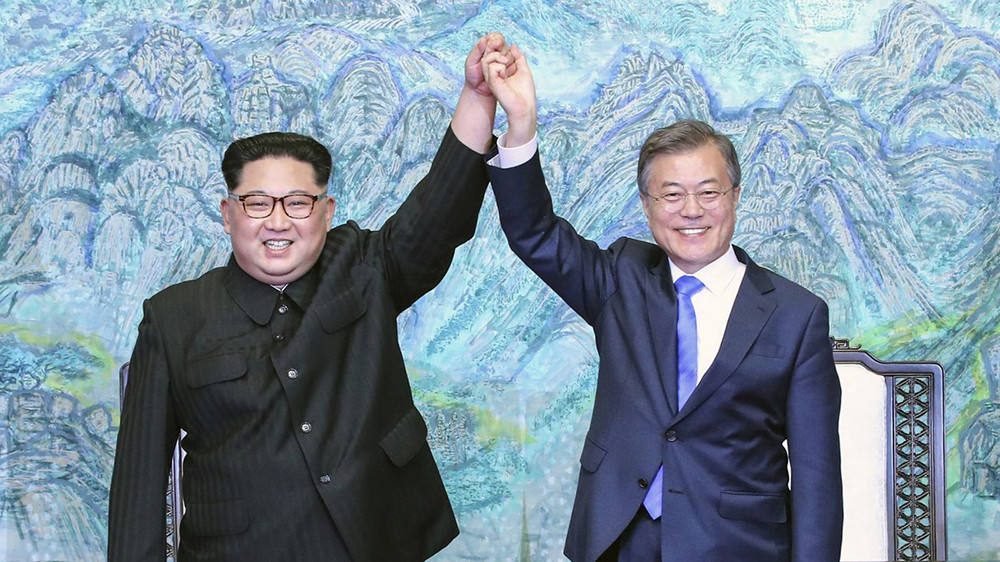 |
| Inter-Korean relations have been at a standstill since the second US-North Korea summit in 2019 in Hanoi failed to make any progress. In this photo: North Korean leader Kim Jong-un (left) and South Korean President Moon Jae-in raise their hands after signing the Panmunjom Joint Declaration on April 27, 2018. Photo: AP |
“Kim Yo-jong’s first statement should be interpreted as a sign of Kim Jong-un’s strongest dissatisfaction with the South Korean government,” said Lim Eul-chul, a professor at the Institute of Far Eastern Studies at Kyungnam University. “After the pledges and friendly handshakes, there were no actual agreements or proposals.”
Stuck at the border
Thousands of refugees from Türkiye have flooded into Greece since President Tayyip Erdogan declared the "doors" open for people from Syria to flood into Europe, in order to put pressure on the European Union (EU) on the war in Idlib province, Syria. In the face of that massive influx, Greece declared a state of maximum alert to protect its borders and stopped considering asylum applications from those entering. Meanwhile, Turkey deployed 1,000 special police to the border to prevent Athens from pushing the refugees back to Turkish territory. This caused refugees hoping to reach Europe to end up stranded between the two countries' borders, raising concerns about a humanitarian crisis.
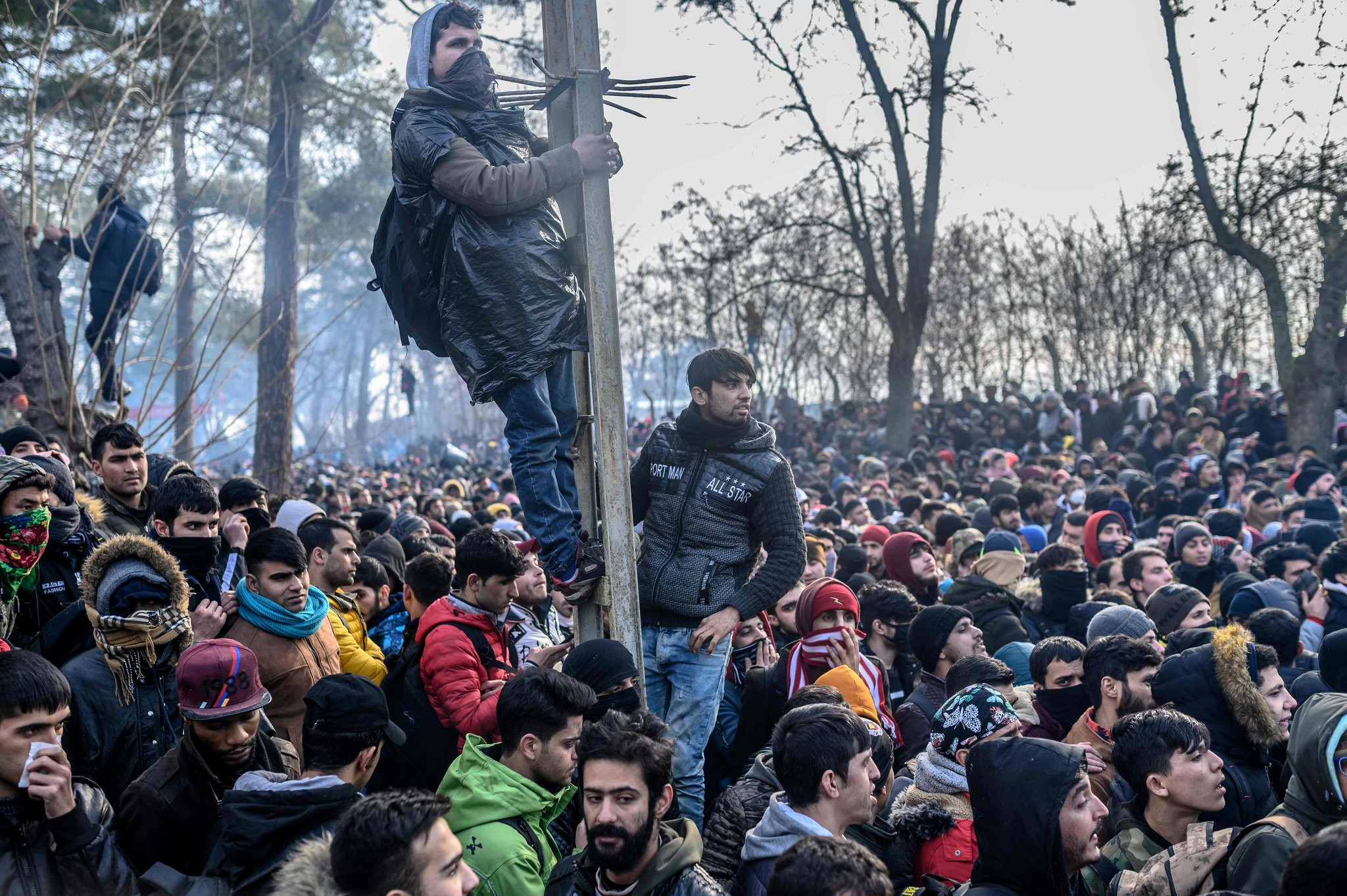 |
| Thousands of refugees stranded at the border between Türkiye and Greece. Photo: NYT |
Poor living conditions and overcrowding in Greek refugee camps have led to days of protests between migrants and security forces. Clashes erupted into violence as protesters threw rocks at police and demanded their release, while security forces fired tear gas into the crowd. The escalating humanitarian crisis has left thousands of Syrians trapped between armed Greek soldiers and Turkish officials accused of using the migrants' desperation as a political bargaining chip. Greece says it has stopped 35,000 people from trying to cross the border in just a few days.
Türkiye's decision to open its borders comes after President Tayyip Erdogan has warned in recent months that he will open the gates of migration to Europe if the EU does not support Ankara's plans in Syria. Türkiye says it cannot take in any more Syrian refugees, on top of the 3.7 million it has already hosted, and has blamed the EU for not sharing the burden. The EU has demanded that Turkey uphold a deal reached in 2016, when the alliance provided Ankara with $6.6 billion in aid to stem the flow of migrants.
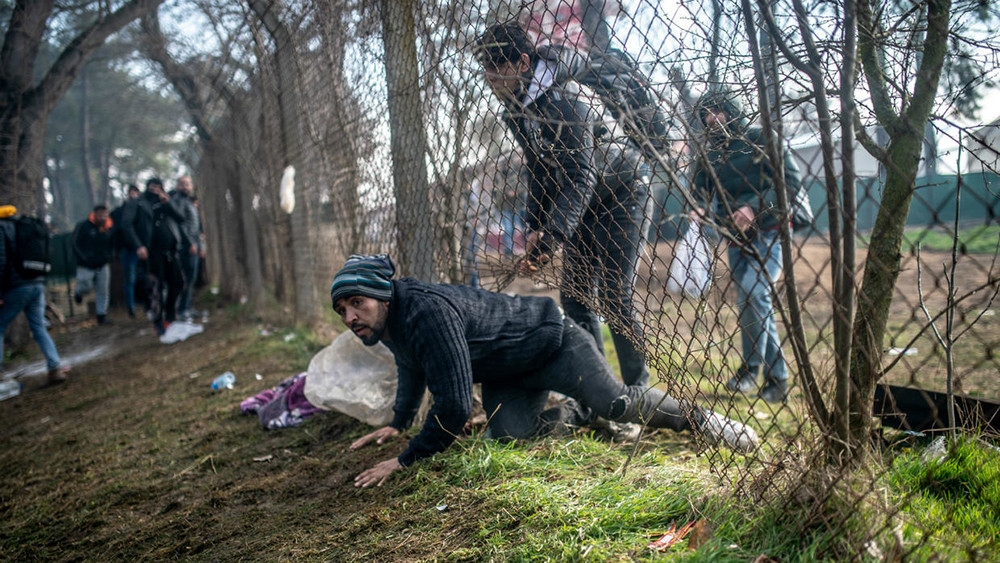 |
| Refugees try to cross the Türkiye-Greece border. Photo: AFP |
Türkiye fears it could face another wave of migrants as Russian-backed Syrian government forces continue fighting in Idlib province, which has pushed hundreds of thousands of Syrian civilians to seek refuge at the Turkish border since early December 2019. On March 5, Turkish President Erdogan held talks with Russian President Vladimir Putin and agreed on a ceasefire and other measures to settle the situation in Idlib province, Syria. However, Türkiye has not disclosed how long the migration policy will be effective.
Greece’s borders are also Europe’s borders. The EU does not want a repeat of the chaos of 2015-2016 when more than 1 million migrants and refugees, mainly from Central Asia, especially from countries with civil wars such as Afghanistan and Syria, flooded into Greece in an attempt to reach Europe. Turkey’s “refugee islands” have been overcrowded in recent times, or the image of a 7-year-old Syrian boy dying on the shore when his boat capsized, is always a haunting image for Europe.

